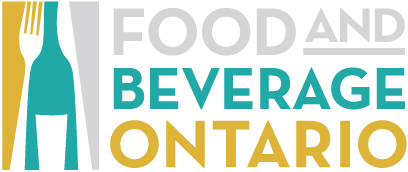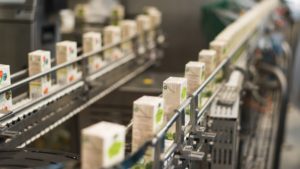Thirteen years ago, a number of food processors gathered in Burlington and formed the Alliance of Ontario Food Processors. Their aim was to elevate the profile of the food and beverage processing sector within the province.
Over time, there was an awareness building that the food and beverage industry as a whole was siloed and not speaking with one voice. In August 2014, the Alliance of Ontario Food Processors re-structured and re-branded the organization to become Food and Beverage Ontario. The mandate was refreshed to represent all categories and sizes of Ontario food and beverage processing businesses in the province. FBO’s CEO Norm Beal was there from the start.
Beal says: “Over a year and a half ago, we started working on a completely different governance model based on one member, one vote. We rolled that out at our annual general meeting a year ago last July. To coincide with that, we felt very strongly that if we were taking this new approach, we ought to rebrand the organization.”
Food and Beverage Ontario is made up of 16 board members that represent small, medium and large businesses from every sector within the industry.
In addition to their major membership drive, Beal says that Food and Beverage Ontario currently has two main initiatives: “One is building an innovation resource that processors across the province can use to develop new products and technologies, as well as modernize plants.” The association is also working to attract new and young people into the industry as a first career choice.
Government Challenge
Beal, who also sits on the Premier’s Growth Steering Committee, says that 18 months ago, at the Agri-Food Summit in Toronto, Ontario Premier Kathleen Wynne challenged the industry to grow by 120,000 jobs. Beal explains that the industry is already the largest employer in the Province of Ontario, providing over 130,000 jobs. The Premier’s challenge means doubling its size. Beal says this means the government recognises that food processing is not only the largest manufacturing sector in the province, but also the one with the most potential for growth.
It is more than the prospect of jobs in the province that is exciting. Beal explains that Ontario’s food and beverage industry is well regarded on the international scene.
“When you go to places like China, Taiwan or Thailand, or even over to Western Europe, (Ontario has) a great reputation for quality and food safety. But we don’t do a very good job of branding it.”
The goal, Beal says, is to change that.
Industry Trends
Beal sees growth coming from innovation, and says the innovators are small producers with potential to expand. Currently, there are only 50 to 75 large food processors out of over 3,000 in Ontario.
Beal says recent immigrants to the country are the cornerstone of innovation. He explains: ”Many of them are the ‘ma and pa operations’ that are sitting around the kitchen table at night, thinking: “Remember when we used to have that great food product in our home country? I think that would do really, really well here.” Those companies have the potential to grow from five or six employees to 50, 60, 70, 100 employees overnight.”
Beal points out it’s the small producers that, through innovation, will grow into medium-sized corporations that could employ 250 to 1,000 people in five to 10 years from now. The small and medium-sized organizations are the ones making substantial investments, both in human and capital resources.
Beal also sees growth in the field of healthy and value-added specialty products.
“Healthy, local, gluten-free… those are key phrases these days. That’s the future of our industry. That’s what many of our small and innovative processors are doing. Ontario is known for producing unique products.”
What Does This Mean for Food and Beverage Ontario?
“We need a strong organization that’s going to speak on behalf of all processors, whether they’re small, medium or large, whether they’re in dairy, chicken processing, wine or craft beer, that can speak to the macro issues; to make sure that the government doesn’t put in place impediments to the future success of the industry.” As the economy adjusts and the automotive industry continues to decline, the province’s food and beverage industry continues to grow and expand. We can all raise a glass of wine to that.
Posted on 2015 Dec 18 by Fuller Landau Team




